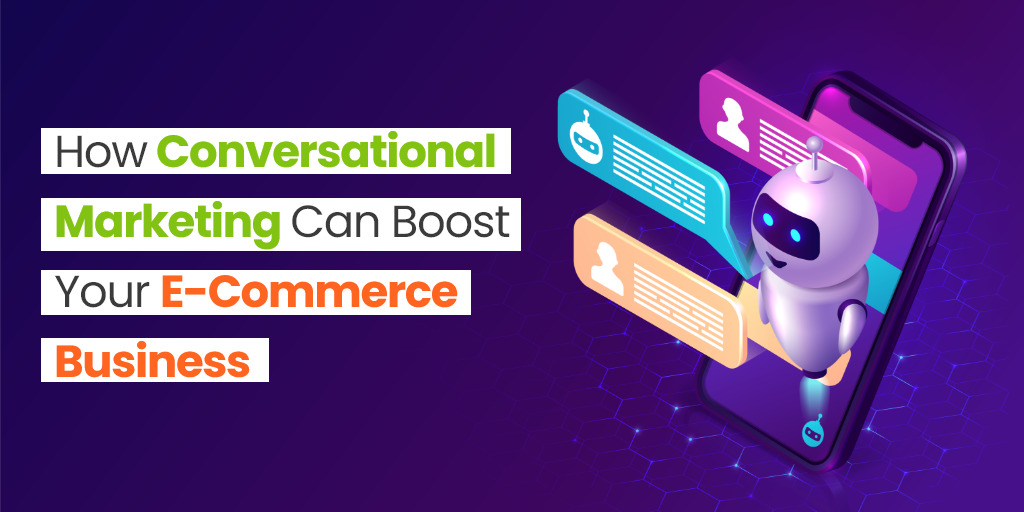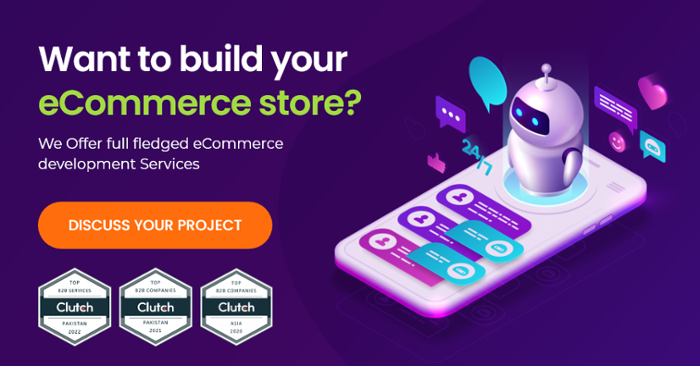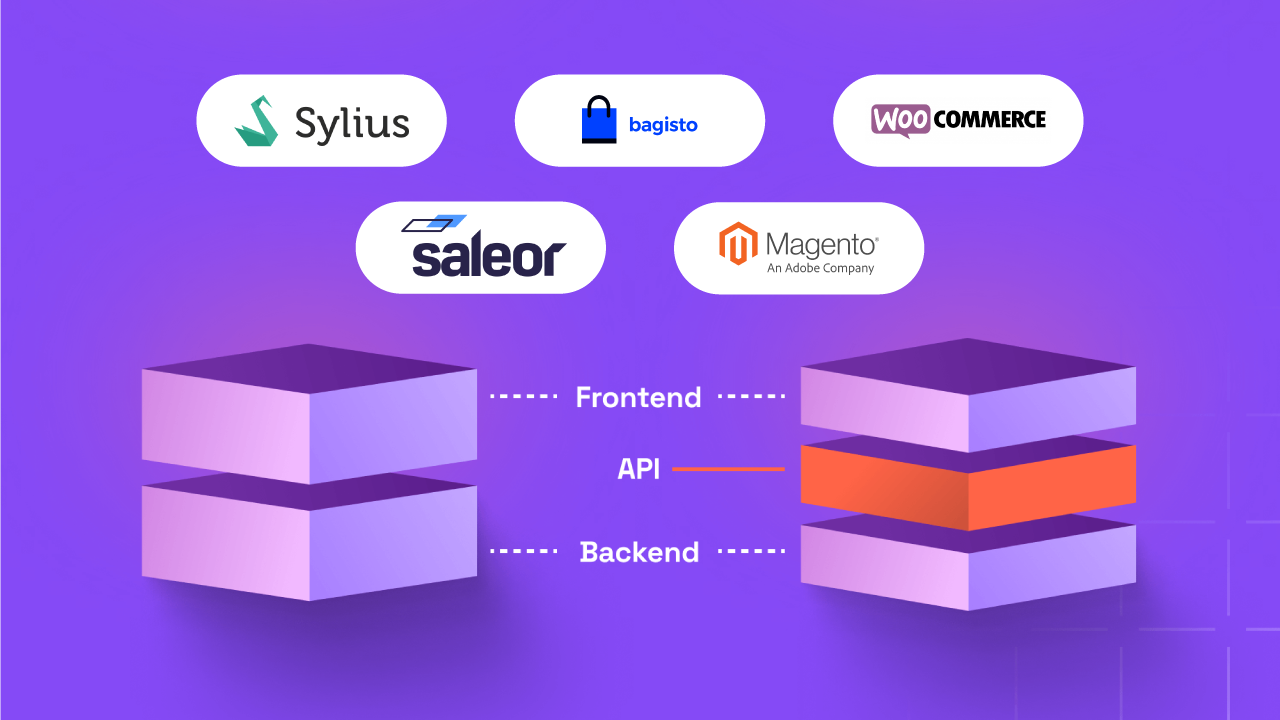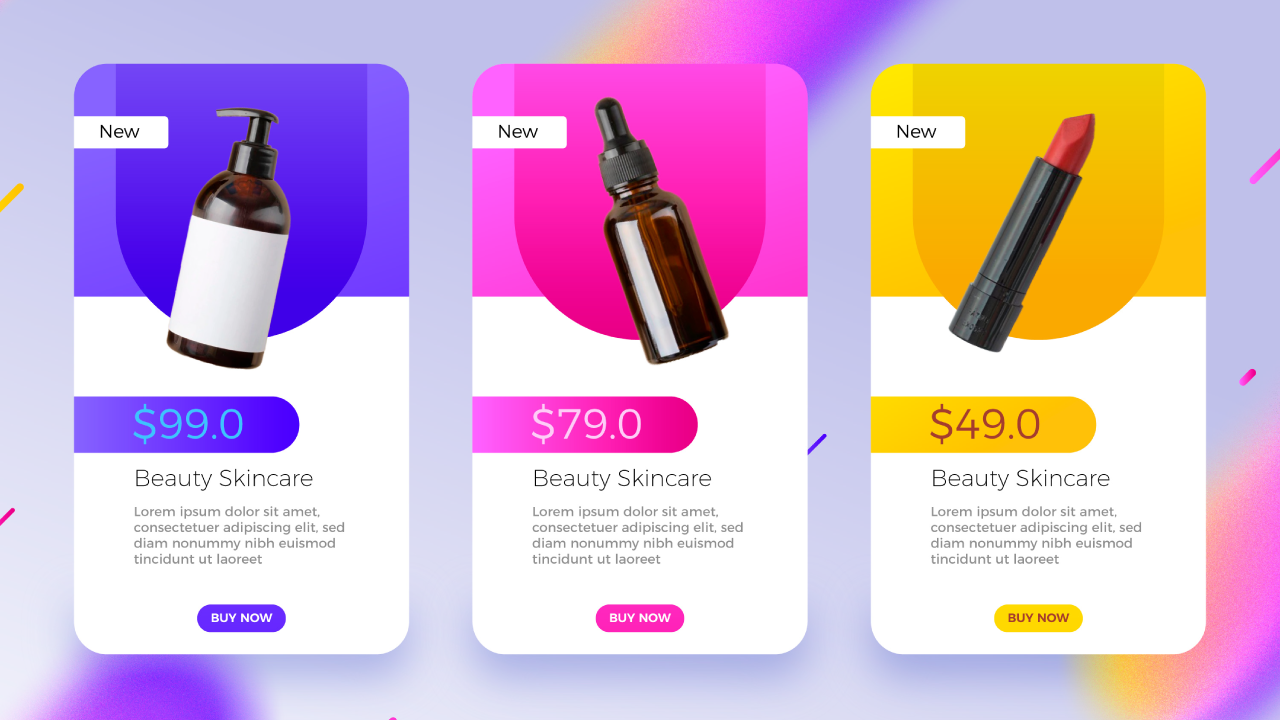How Conversational Marketing can Boost Your eCommerce Business

Relatable, personal, fast, and human — it is the criteria businesses today approach potential clientele. Today, marketing isn’t about simply advertising products, it is to build a relationship with your customers — and what other way is there to do that than starting a conversation.
We have arrived at the stage of technology where conversations are happening faster. People don’t have to wait for weeks to hear back from someone. That said, with every iteration of technology, our accepted response time has changed. When it comes to businesses, customers expect conversations to happen how, when, and where they want.
Sounds intimidating, right? Don’t worry! It is not as complicated as it sounds. While the technology to start with a conversation has changed, its essence is still the same. Even in this advanced era, people expect conversations to be helpful, personal, and empathetic. The only difference is the technology implemented, to begin with, those conversations at scale.
However, before jumping on the guide to conversational marketing, let’s understand what it actually is.
What is Conversational Marketing?
The name itself is pretty self-explanatory! But, by definition, it is a customer-centric and dialogue-driven approach to marketing and a go-to strategy to boost customer engagement, improving customer experience and revenue generation.
Conversational marketing is based on one-to-one interactions with customers in real time across multiple channels. How it helps businesses? Think, Chatbots. Conversational marketing, as said above, is all about how a business interacts with its clientele, and chatbots have made it a lot more accessible.
But conversational marketing is much more than just chatbots. Any form of two-way communication, such as live chat or email, can be a part of conversational marketing. Think about it: people love it when a business instantly responds to their query. The fact is that 63% of customers who reached out to your business via live chat are likely to revisit your website.
This specifically works best for eCommerce businesses. Consider a customer coming to your website with queries regarding a product you sell. If they do not find an answer to their query that satisfy their confusion, they are likely not to come back to your platform. Conversely, if they find a solution through careful and personalized conversations based on data and information collected from the client, it will boost their experience, ultimately making your platform a go-to site to make a purchase.
The key here is to understand and assess your customers’ preferred channels and adjust to the tone accordingly. For example, dialogue with live chats and Chatbots mimic a casual tone when starting a conversation.
So, what constitutes a good conversation? Something that has the right context and is goal-oriented. Therefore, when you are developing a conversational marketing strategy, make sure to consider how it impacts every aspect of your business.
Read Also: Eleven Ecommerce Marketing Strategies To Jump Start Your Digital Game
The Key Elements of Conversational Marketing
Understanding what conversational marketing is, you may think, “it sounds like my current marketing strategy. I am reaching out to my clients through multiple channels, and I am having conversations with my audience”.
If your marketing strategy is customer-centric, chances are you are already there. Here are four elements of conversational marketing to best refine your strategy.
1. Conversations Should Happen at the Customer’s Time Preference
Conversational marketing is an asynchronous relationship with the customer. It means that conversations should occur at the time that customers prefer — whether it is in real-time. Later at night, when they have a spare moment or simply after finishing up with a meeting. While starting communication is important in real-time, it is just as important to be available at the time that customer prefers.
2. Conversations are Scalable
A customer only cares about how you solve their problem and assist them in finding a possible solution. Businesses, especially startups or mid-sized businesses, shouldn’t be left behind due to the lack of resources. This is where chatbots come in to save the day. Chatbots provide 24/7 support possible to provide answers based on data that already exist. In simple terms, it offers quick access to information and customers.
3. Conversations Should Have Context
Context is important for two reasons. First, it is about what your audience expects from you. Second, it makes messaging more convenient. Think about it, people want to get answers to their queries as quickly as possible and without putting any effort. With proper context to the conversation — context meaning the gathering, storing, and sharing of customer data for optimum support — the more you’ll know about the customer and will be able to cater to their problem in an efficient manner.
Benefits of Conversational Marketing
If done right, conversational marketing provides multiple benefits that can add a competitive edge to your business in the market. Let’s discuss some of the benefits of conversational marketing.
1. Better Customer Experience
Having conversations with a potential client helps in learning specific needs and identifying their pain points. The initial stage is about collecting information that could qualify them further in the sales funnel.
Your voice must be scaled according to where the buyer is in their journey. It can be done by sending them relevant and targeted to be able to interact in a meaningful way. In addition, by taking advantage of AI-powered tools such as Chatbot, meaningful conversations can be run 24/7 to help your company become a trustworthy partner for your customers. Make sure to hire the best eCommerce development services to implement it into your business.
2. Improved Lead Generation
Better interaction improves customer engagement with the company. It can optimize customer experience and convert more visitors into paying customers. Interactive conversations not only convert leads but also qualify them for sales, given you ask the right questions at the right time.
3. Boosts Buyer Journey Through the Sales Funnel
Considering your marketing activities are connected with sales, you can make sure that potential buyers are moving quickly through marketing to the sales funnel in an effective way. Bots can send qualified leads to your sales rep via live chat and book a meeting with sales in real time.
Conversational Marketing vs. Inbound Marketing
So, is there any difference between conversational marketing and inbound marketing?
Well, yes and no. Conversational marketing is actually considered a part of inbound marketing.
Inbound marketing is all about creating value for customers where they spend most of their time — it can be done through writing a blog, interacting with social media channels, or sharing a video on YouTube. Conversational marketing, on the other hand, is actually conversing with customers through various channels.
First, you can attract potential customers to your brand with inbound marketing. Then you can use conversational marketing to allow people to initiate a conversation. It gives your audience control over how they want to communicate, what they want, and where they want to initiate the conversation.
To say in simple words, inbound marketing is getting a potential lead into the room, while conversational marketing is all about maximizing the value of those leads when they arrive.
Tools You Need to Implement Conversational Marketing
By now, you know how conversational marketing works. But chances are you still do not know how businesses can actually start building out a strategy for success.
The best way to do this is to analyze your answer and work to create the best possible experience for your customers. While there are numerous things you can do to optimize your conversations, here are a few essentials you want to keep in mind.
Your CRM and Conversational Marketing
Consider talking to a friend. You don’t expect to remind them who you are or where you live. It all comes to you because they know you. The same goes when a customer has a conversation with a business. This is where your CRM comes to play.
A CRM works like a digital memory. It allows you to have conversations with the customers like you know them. Fast and reliable access to shared customer knowledge is a critical aspect of a successful conversational strategy. This relies on storing and organizing data in order to have a seamless interaction with the customers.
But what information should businesses collect? The fact is, you don’t need to know everything about them. Knowing the basics of the target audience and details of a past conversation with a customer is potentially enough.
To do this right, begin with what you want your customers to accomplish via chat and then build a process to acquire the necessary information to optimize your customer experience.
Automate via Chatbots
Once your CRM is set, you have to figure out a way to scale your conversations. This is where chatbots come in to save the day.
Businesses grow globally. That means there is a need for someone to be in support to answer the queries of the customers 24/7. Customers need to be able to connect with the business whenever they want to and from wherever they want to. Therefore, conversation marketing with bots is crucial in keeping up with the volume of conversations and adds a competitive edge in the competitive business landscape.
Here are a few ways chatbots can help:
- Answer FAQs or customer-specific questions based on available data.
- Qualify leads
- Promote events, content, and products
- Schedule meetings
- Get feedback from the customers.
There are numerous things that can be automated with Chatbot. But bear in mind it should not work as a barrier between customer and human interaction.

Wrapping it Up
Wrapping it up, it is important to know that personalized one-on-one conversations have the power to build customer relationships, increase customer loyalty and deliver experience. It is great to boost engagement, sales, and satisfaction of the customer, ultimately boosting the business growth.
In simple words, it is not just an opportunity to improve your funnel, it has become a necessity of the market today. Conversational marketing enables businesses to embrace consumers in a personalized way. The fact is, they love it when you do it.



